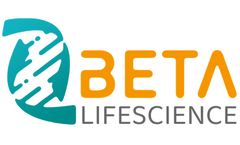T Cell Therapies Articles & Analysis: Older
23 articles found
The primary focus is on harnessing this technology for modifying primary T cells, a type of white blood cell crucial for the immune response. ...
The emergence of chimeric antigen receptor T-cell (CAR-T) therapy has revolutionized the treatment of certain cancers, providing a promising targeted approach to eliminate cancer cells. ...
What is CAR T-cell therapy? Car-t cell therapy involves genetically engineering T cells isolated from patients or allogeneic donors to express chimeric antigen receptors (CAR) that specifically recognize and kill tumor cells. ...
This heightened expression of CD19 makes it a valuable target for treating these diseases. CAR-T cell therapy, an immunotherapy, has demonstrated efficacy in treating B-cell lymphoma by genetically modifying the patient's T cells to carry CD19-specific receptors. ...
Low Endotoxin Cytokines Matters Organoid culture, CAR-T cell therapy, stem cell therapy, and other topics have become broadly discussed among biomedical researchers. ...
CAR T Cell Therapy CAR T cell therapy is another immunotherapy utilizing cytotoxic T cells. ...
So far, anti-mesothelin antibody-drug conjugates have been successfully used to treat mesothelin-expressing solid tumors, including ovarian cancer, pancreatic cancer, and malignant mesothelioma; and mesothelin targets chimeric antigen receptor (CAR) T cell therapy also showed significant antitumor effects. Therefore, targeted ...
Cytokines-mediated signaling is a primary way of immune system communication. The common gamma-chain family of cytokines is a set of six cytokines that signal through the common cytokine γ chain receptor (γc/CD132/IL2RG). These cytokines include IL-2, IL-4, IL-7, IL-9, IL-15, and IL-21. Besides the IL-2RG receptor subunit, the γc family cytokine receptors include IL-2RB ...
Chimeric antigen receptor T cells (CAR-T) and T cell antigen receptor chimeric T cells (TCR-T) are currently the "top stream" in adoptive T cell tumor immunotherapy. ...
The findings may partially explain why liquid and solid tumors respond very differently to CAR-T cell therapy. Chimeric antigen receptor (CAR) is a synthetic molecule that specifically commands T cells of the immune system to recognize and adhere to a target or antigen. ...
At present, chimeric antigen receptor T cell therapy (CAR-T) has made significant achievements in the treatment of specific hematological cancers, allowing patients with relapsed/refractory disease to survive longer and become healthier, but in clinical studies, cell therapy has actually not been ...
Gene editing technology, represented by CRISPR/Cas9, has greatly accelerated the development of gene therapy, bringing hope to many genetic diseases that otherwise had no cure. ...
More recently, bispecific antibodies and chimeric antigen receptor T (CAR-T) cells, including those for anti-TACA, have been evaluated in the clinic and have made impressive progress. ...
TCR-T immunotherapy boosts the host immune system by interacting effectively with MHC molecules, particularly class II molecules, which are uniquely recognized by TCR-T cells and CAR-T cells. CAR-T cells primarily detect tumor surface antigens, whereas TCR-T ...
Heart failure, liver disease, and kidney failure are just a few of the major conditions that can result from cardiac fibrosis. The FDA approved CAR-T cell therapy, also known as chimeric antigen receptor T-cell therapy, as the first CAR-T cell ...
This also marks the arrival of the era of cell therapy. Today, CAR-T has become one of the most important new developments in cancer immunotherapy, and many breakthroughs have been made in hematological tumors, but CAR-T therapy is usually limited by T cell failure. ...
The growing pipeline of cell and gene therapy therapies has led to an increase in demand for gene delivery vehicles such as plasmid DNA (pDNA), messenger RNA (mRNA) and viral vectors. ...
Gene-modified cell therapies (GMCTs) represent the most effective therapeutic platform for many patients with advanced diseases including relapsed and refractory leukemia, non-Hodgkin lymphoma, and other blood cancers [1]. Specifically, chimeric antigen receptor T cell (CAR-T) therapies targeting ...
Purpose:Although considerable progress has been made withautologous T cell–based therapy in B-cell malignancies, appli-cation in chronic lymphocytic leukemia (CLL) lags behind dueto disappointing response rates as well as substantial toxicitythat is of particular concern in the elderly CLL ...
Considerable investment into cancer research has led to the development of remarkable new therapies, which have greatly improved therapeutic outcome for the countless individuals diagnosed with cancer. Until recently, almost all therapies that were granted clinical approval were small molecules. However, biotechnological advances in the last several decades have ...












